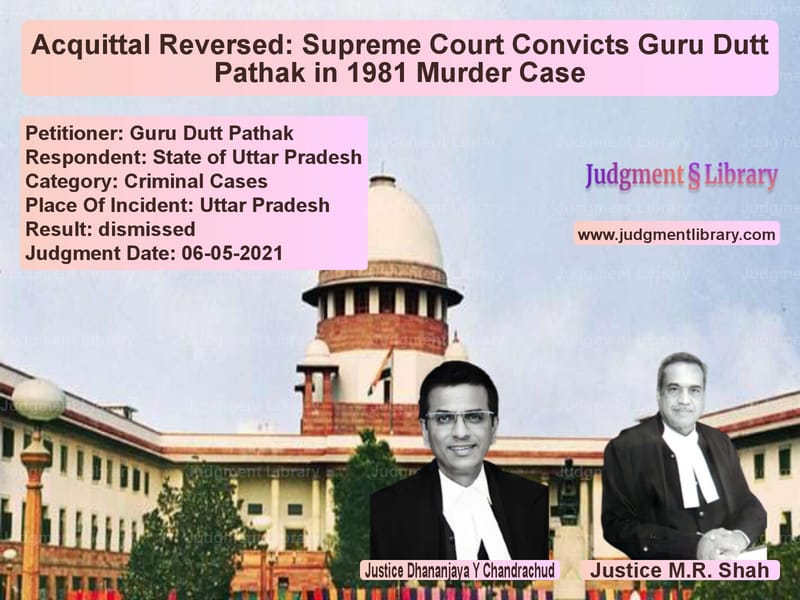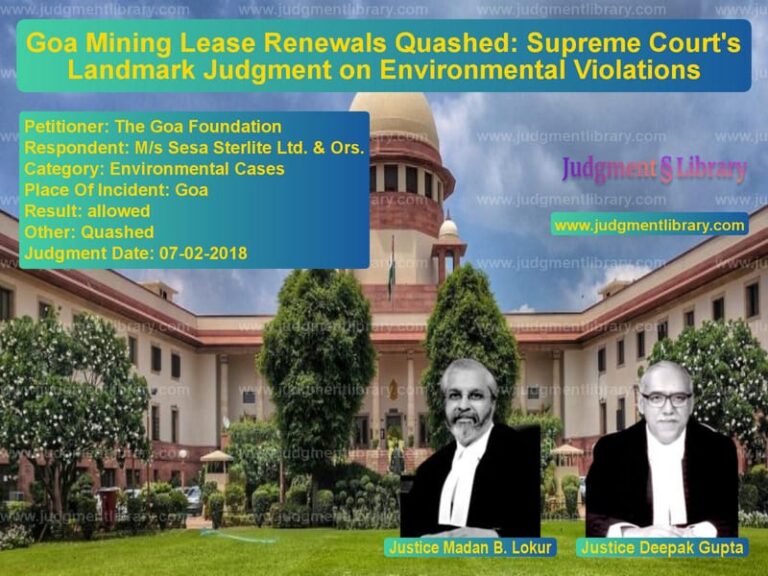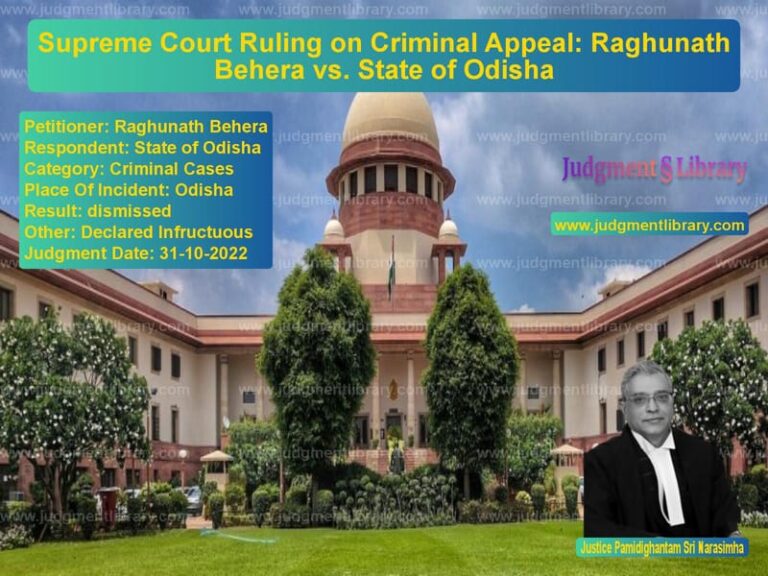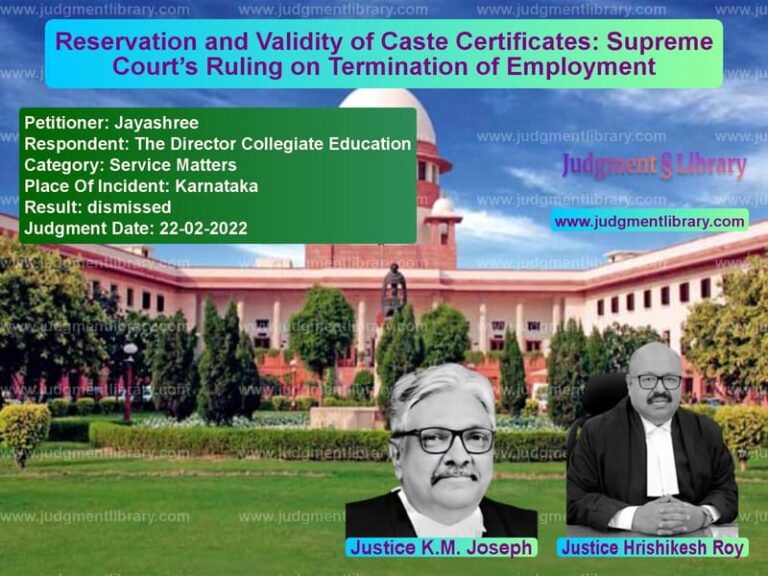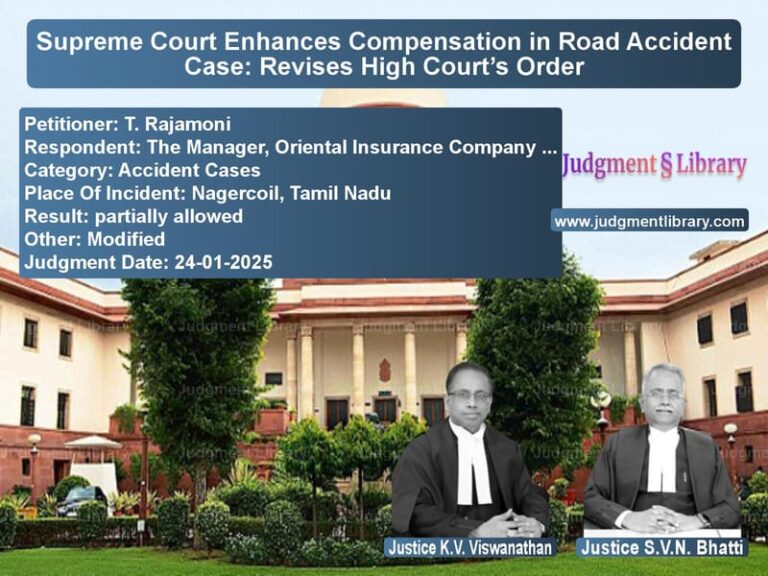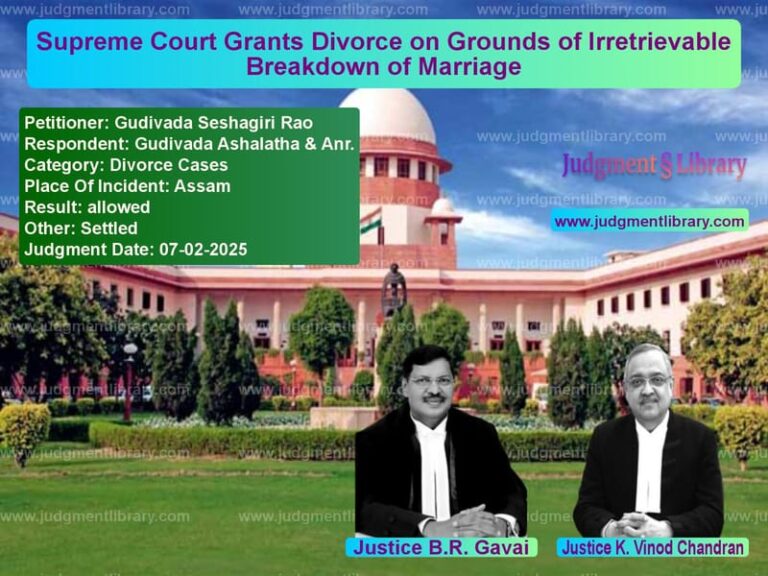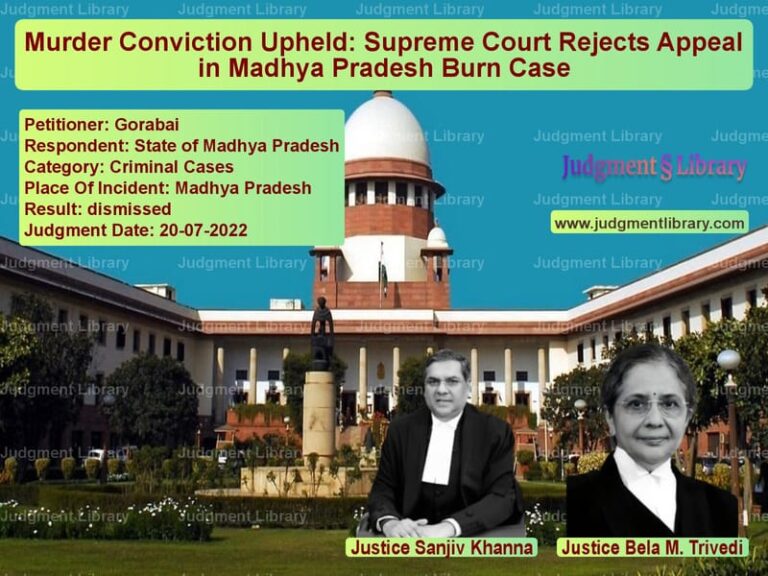Acquittal Reversed: Supreme Court Convicts Guru Dutt Pathak in 1981 Murder Case
The Supreme Court of India has delivered a significant ruling in the case of Guru Dutt Pathak v. State of Uttar Pradesh, wherein the Court overturned the acquittal granted by the trial court and reinstated the conviction under Section 302 read with Section 34 of the Indian Penal Code (IPC). The case pertains to the brutal murder of village pradhan Ram Aasare Pathak in 1981, allegedly due to political and personal enmity.
Background of the Case
The incident took place on October 6, 1981, at around 7:00 a.m., when the deceased was on his way to relieve himself near the bank of river Yamuna in Uttar Pradesh. He was suddenly attacked by the accused, who emerged from a nearby field and assaulted him with lathis and a spear. Witnesses, including the victim’s son, saw the accused brutally beating the deceased, ultimately crushing his skull. The victim died on the spot.
The son of the deceased, Satrughan Pathak, lodged an FIR, and the case was investigated. The trial court initially acquitted all the accused, citing insufficient evidence and questioning the credibility of the eyewitnesses. However, the High Court reversed this decision, convicting Guru Dutt Pathak under Section 302/34 IPC and sentencing him to life imprisonment.
Arguments by the Petitioner (Accused)
Guru Dutt Pathak, through his counsel, challenged the High Court’s decision on the following grounds:
- The High Court overstepped its jurisdiction by overturning a well-reasoned acquittal.
- The prosecution failed to establish motive, weakening the case.
- The eyewitnesses were all related to the deceased and were thus interested parties, making their testimonies unreliable.
- No independent witnesses were examined.
- The place of occurrence was not properly established.
- The medical evidence did not support the prosecution’s version, as there were no firearm injuries.
- The prosecution failed to explain injuries found on one of the accused.
- The FIR was allegedly ante-dated, raising doubts about its authenticity.
Arguments by the Respondent (State of Uttar Pradesh)
The State, represented by its counsel, defended the High Court’s judgment, stating:
- The High Court was within its rights to re-evaluate the evidence and had correctly found the trial court’s reasoning to be flawed.
- The absence of independent witnesses does not invalidate the testimony of credible witnesses, particularly when they have consistently supported the prosecution’s case.
- The accused had acknowledged enmity with the deceased, establishing motive.
- The place of occurrence was confirmed through forensic evidence, including the recovery of blood-stained items.
- Medical evidence corroborated the nature of the injuries described by the witnesses.
Supreme Court’s Observations and Verdict
1. High Court’s Authority to Reverse Acquittal
The Supreme Court reaffirmed that a High Court has the authority to review and reverse acquittals if the findings of the trial court are perverse or ignore crucial evidence. It noted:
“When two views are possible, and an acquittal is based on misappreciation of evidence, the High Court is justified in interfering with the verdict.”
2. Reliability of Witnesses
The Court held that the testimonies of related witnesses cannot be discarded merely because they are interested parties. The Court stated:
“A witness’s credibility is determined by consistency and corroboration, not merely by their relationship to the victim.”
3. Medical and Forensic Evidence
The Court dismissed claims of inconsistency, noting that the absence of firearm injuries did not disprove the prosecution’s case, as the primary weapons used were lathis and a spear.
4. Place of Occurrence
Forensic evidence, including the recovery of blood-stained clothes and items, confirmed the location of the crime, aligning with the eyewitness testimonies.
5. Motive and Enmity
The Court emphasized that while motive strengthens a case, its absence is not fatal when direct evidence from eyewitnesses is available.
Final Judgment
The Supreme Court upheld the High Court’s conviction of Guru Dutt Pathak under Section 302/34 IPC, stating:
“The findings of the trial court were perverse and contrary to the evidence on record. The High Court rightly exercised its appellate jurisdiction to correct the miscarriage of justice.”
The appeal was dismissed, and the accused was ordered to surrender immediately to serve his sentence.
Conclusion
The Supreme Court’s decision reinforces the principle that acquittals based on erroneous interpretations of evidence can be overturned by appellate courts. The ruling ensures that justice prevails even after decades, upholding the rule of law.
Petitioner Name: Guru Dutt Pathak.Respondent Name: State of Uttar Pradesh.Judgment By: Justice Dhananjaya Y Chandrachud, Justice M.R. Shah.Place Of Incident: Uttar Pradesh.Judgment Date: 06-05-2021.
Don’t miss out on the full details! Download the complete judgment in PDF format below and gain valuable insights instantly!
Download Judgment: guru-dutt-pathak-vs-state-of-uttar-prade-supreme-court-of-india-judgment-dated-06-05-2021.pdf
Directly Download Judgment: Directly download this Judgment
See all petitions in Murder Cases
See all petitions in Judgment by Dhananjaya Y Chandrachud
See all petitions in Judgment by Mukeshkumar Rasikbhai Shah
See all petitions in dismissed
See all petitions in supreme court of India judgments May 2021
See all petitions in 2021 judgments
See all posts in Criminal Cases Category
See all allowed petitions in Criminal Cases Category
See all Dismissed petitions in Criminal Cases Category
See all partially allowed petitions in Criminal Cases Category

